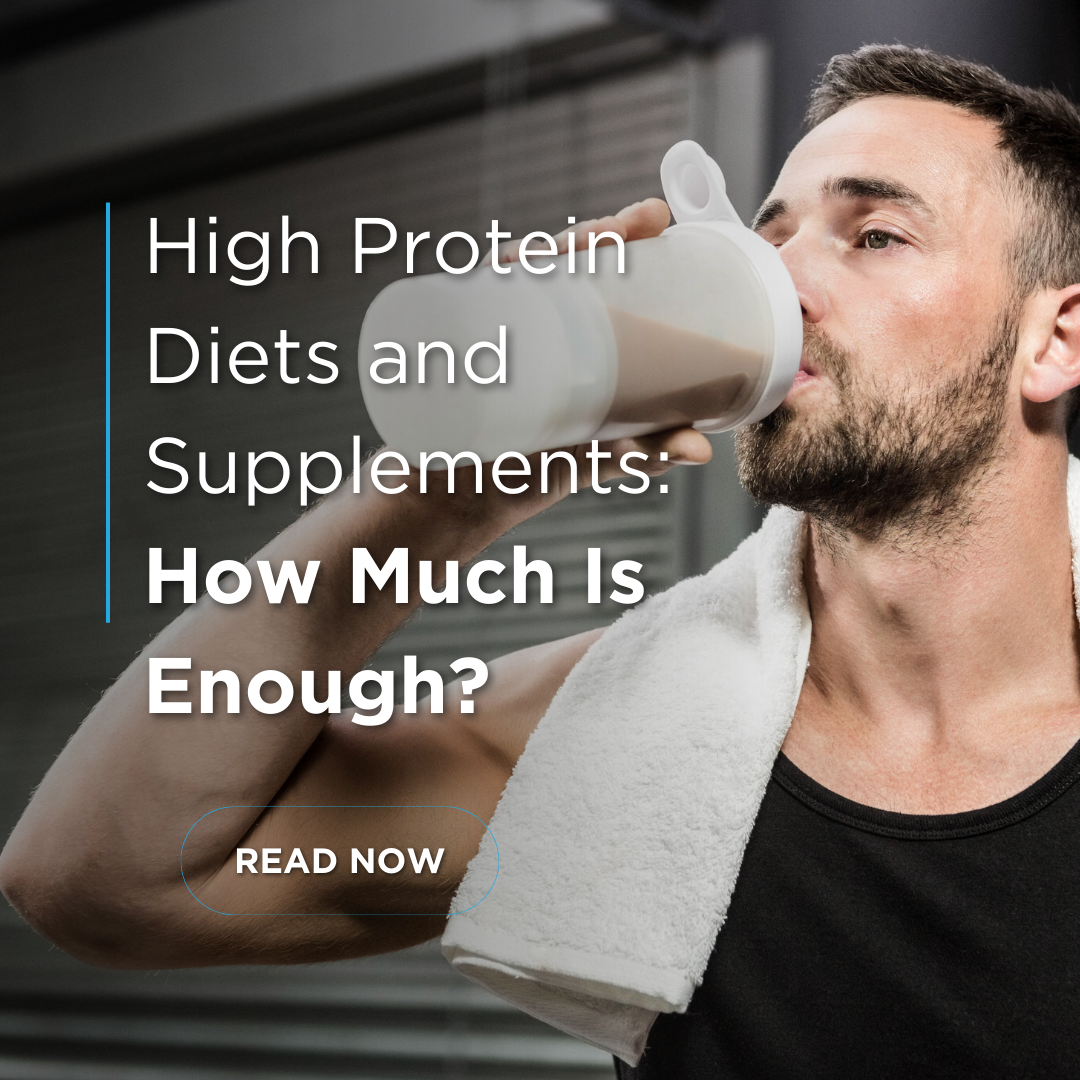David Fein, MD
Medical Director
Princeton Longevity Center
It’s in every gym and health food store today. It’s on billboards and advertisements everywhere. High protein diets and protein supplementation is everywhere. From powders and shakes to high-protein snack bars, the message is clear — more protein equals better health, stronger muscles, and weight loss. But the reality of a high protein intake is more complicated than that. Is protein really better for you than other nutrients and, if so, how much do you need?
Protein is one of just three main macronutrients. Everything you can find to eat is made of either protein, carbohydrates or fat. There are a few other trace nutrients in the diet such as vitamins, minerals and some other chemically active substances that don’t neatly fit into the macronutrient categories. But by and large, all your calories come from protein, carbs or fat.
Proteins are important for many important processes in the body such as building muscle, producing enzymes and hormones, immune function and much more. So at first glance it certainly sounds like eating a lot of protein would directly contribute to making you healthier and stronger.
If we look at how proteins are processed by the body the first thing to consider is that you don’t absorb proteins unchanged directly into your body. Proteins are made of individual amino acids. There are about 20 different amino acids that we use to make proteins. Eleven of these amino acids we can manufacture on our own in our cells even if we don’t get enough of them in our diets. The other nine are considered “essential amino acids”. We need to get enough of those from our food.
In healthy adults with normal gut function essentially all proteins get broken down into their individual amino acids or smaller “peptides” made of two or three amino acids still bound together before they can be absorbed from the intestine into the blood. Even those that get absorbed as peptides still get quickly broken down into individual amino acids. So, when you try to supplement your protein intake you are really taking more about supplementing your amino acid intake. You are not absorbing whole proteins.
Getting enough of the essential amino acids is certainly vital for good health. The key concern is much is enough and does it do any good to get more than that.
The vast majority of people in this country get more than enough protein in their diets. For the average adult the official guidelines recommend a minimum of 0.8 grams of protein per day per kilogram of body weight. So, for most people that is around 50-80 grams per day. For people with underlying medical problems such as gut problems that interfere with absorption or if they are very active then a higher intake may be helpful.
For athletes or those who are on weight loss diets where a higher intake may help to minimize muscle loss getting as much as 1.5 to 2.0 grams per kilogram of body weight may be appropriate. This equates to around 100-200 grams per day.
For someone who needs just 50 grams of protein per day to meet their nutritional needs that means eating around 7 ounces of a high protein meat like beef or around 3 cups of a good vegetable source of protein such as beans.
If you need to aim for closer to 200 grams per day it gets a bit more challenging. That is the equivalent of around 1-1.5 lbs of cooked chicken breast per day.
Keep in mind, eating more protein will not build muscle mass. Exercise builds muscle mass. If you exercise to stimulate muscle growth then you need to have enough protein intake to meet the metabolic demands of adding that muscle. But if you think that adding more protein to your diet without increasing your exercise is going to help you bulk up, you are going to be adding more fat, not muscle. Eating 200 grams of protein per day is fine if you are there is a specific metabolic reason for why you need that much. But exceeding what your body actually needs for protein synthesis is not going to be advantageous.
Unlike sugar or fat, there is no storage form of amino acids in the body. Once your protein needs are met for protein synthesis, tissue repair, enzyme production, hormone production, etc., the extra amino acids are simply metabolized into other substances.
First the nitrogen is removed from the amino acid and converted into urea which is excreted by the kidneys. There is significant evidence that very high protein loads lead to increased strain for the kidneys and can impair kidney function. For those who already have kidney issues, it can accelerate the damage.
The remaining carbon backbone of the amino acid is either converted to glucose or to fats. A gram of protein or its amino acids has 4 calories. One gram of fat has 9 calories. One gram of sugar has 4 calories. From a calorie standpoint, adding more protein is the same as eating more sugar. If you take in more protein than your body can use it ultimately ends up just being excess calories and making you fatter.
Taking a protein supplement may be useful for those who are very high-end athletes and for those who are on aggressive weight loss diets where their calorie intake is so restricted that they are not getting enough protein from regular foods. But bear in mind that most protein supplements are heavily processed and are often filled with additives, artificial sweeteners or sugar. While they may be convenient, they also run the risk of needlessly increasing your overall calorie intake and crowding out other sources of better nutrients in your diet. Protein supplements don’t contain the fiber, vitamins and minerals that are found in whole foods. If you increase your calorie intake with a protein shake or other supplement that leaves less room in your calorie budget for other foods that are more nutritionally complete and beneficial.
For most people, food should be the primary source of protein with supplements only used in limited amounts if there is a gap to fill.
You should try to distribute your protein intake evenly throughout the day. Aim for about 25-30 grams of protein intake per meal. This will work better for your metabolism and help maintain good health more than taking in a much larger amount of protein all at once.
Prioritize whole food with lean meats, fish, dairy, legumes and nuts over processed protein bars or shakes. And don’t forget to ensure your diet still contains fiber-rich vegetables, fruits and whole grains.
If you are trying to increase your protein intake, make sure you get adequate hydration. Higher protein intake increases nitrogen waste products in the urine and drinking more water will help the kidneys with excreting the higher nitrogen load.
A well-rounded diet with adequate amounts of fresh whole foods is almost certainly going to give you all the protein intake your body can use. Rather than focusing on a high protein diet as a magical path to better health, balancing your diet with a variety of nutrient-rich foods, keeping your weight in a healthy range and getting plenty of physical activity is much more likely to keep you in good health than the latest fad that comes in a wrapper or a jar.



